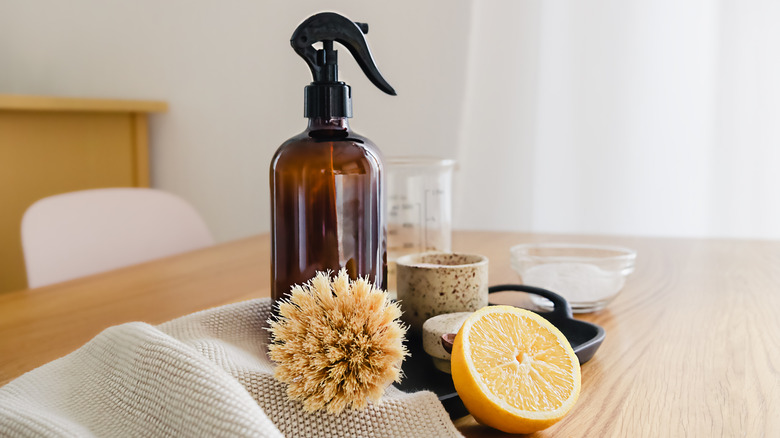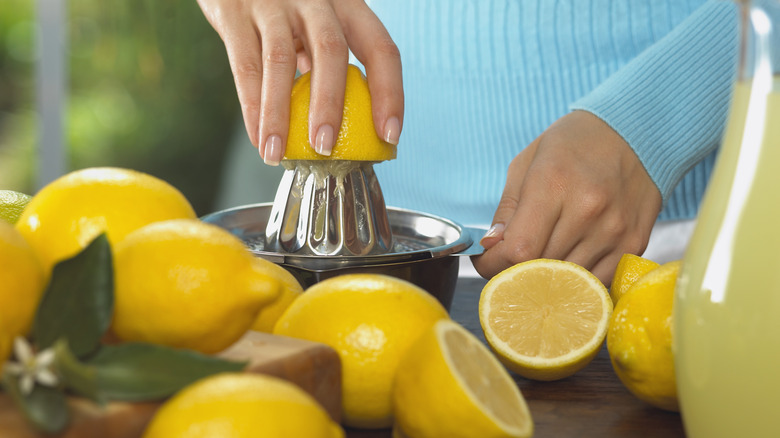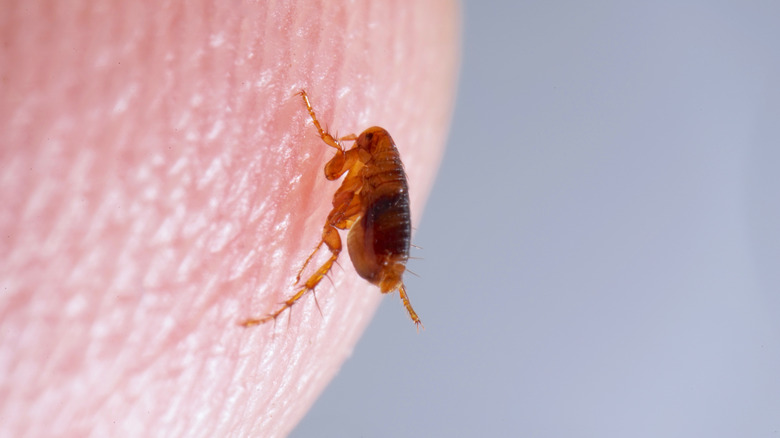How To Fight Fleas Naturally With The Help Of Lemon Juice
Your furry friends are fun and loveable until they bring fleas in. Dealing with fleas can be a headache since you often have to choose between safe or efficient products. Many chemical treatments work quickly with great results, but they can put everyone in your household at risk. Rather than struggling with this moral juggling act, head to your kitchen and grab a lemon. Lemon juice is highly effective against fleas due to the compound called d-limonene, often called limonene. This compound is toxic to fleas and other insects but has low toxicity towards mammals and humans, making it safe to use in the home.
You can easily turn lemon juice into a flea-fighting spray to use in your home or on your pets. You can also use lemon essential oil as a repellent. Though limonene is typically considered safe, always talk to your vet before introducing your pet to a new insect treatment. Essential oils harm pets when they have direct content with them, and lemon juice sprays could burn wounds and eyes.
How to use lemon juice against fleas
The easiest way to turn lemon juice into your go-to flea treatment is to make a spray you can keep on hand. According to the Animal Humane Society, you need six lemons and a quart of water. Squeeze the lemons and add the juice to the water, then bring it to a boil. Allow the mixture to steep for at least an hour. Once the mixture is completely cooled down, you can add it to a spray bottle. You can spray it on anything lemon juice won't ruin, including your pet, provided they don't have any wounds. Spray it around the house, on your clothing, or anywhere else you need to keep fleas away.
If lemon essential oil is something you usually have on hand, you can also put that to work. However, you'll need to be more careful with this one since essential oils are toxic to pets of all kinds (via ASPCA). You can add oil to the outside of your pet's collar so that it doesn't touch their skin, which will help repel fleas. If you have any concerns about either of these methods, talk to your vet first.
Why lemon juice works
What is it about lemon juice that's so deadly to insects? It's all about the d-limonene, a compound that can be found in other essential oils, including bergamot and orange. It isn't toxic to pets and people, though it can be an irritant to the skin in direct contact. However, it was registered as a repellent for cats and dogs in 1983, and products containing it are generally considered safe to use.
A study published in the Entomologia Experimentalis et Applicata tested d-limonene on fleas to see if it really does work. Fleas were treated with the compound and then released on a host animal. The control group of fleas that weren't treated behaved as normal, but the treated fleas didn't lay eggs and died much quicker than the untreated fleas. Iowa State University says that in its undistilled form, the lemon oil was the most toxic to flea eggs, so it can also be used as a topical treatment.


